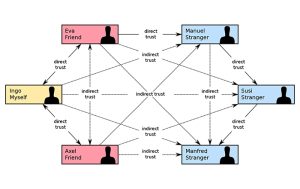— July 5, 2019

Loyalty in every relation brings happiness and satisfaction. Even at the workplace, employee loyalty is essential for the long-term success of the company. It not only boosts the productivity and efficiency of the company but also decreases turnover costs. Good employee relations ultimately provide a stable and secure work environment.
Managers know the importance of employee loyalty, but their focus shifts on the “hard” numbers when the company faces tough times. The result is that the company faces downsizing and restructuring.
Layoffs seem an easy option to take to pull the company out of debts and other troubles. It also seems like the company is getting serious about controlling their finances. But in the long run, these steps hamper the company’s output and performance. They fail to realize the long-term cost savings and productivity, which leads to more employee layoffs.
Link Between Employee Loyalty and Profitability
It seems a very subjective thing to say that employee loyalty is a huge factor behind the company’s productivity and performance. But it’s not. Researchers and analysts from the University of Pennsylvania have revealed that investing some amount in developing employee capital increases productivity by 8.5%. This means that investing in employees gives positive financial outcomes.
This directs us towards another concern- knowing how loyal the employees are. This doesn’t mean asking simple questions to them, but getting strong feedback from all employees. This may include the manager’s relationship styles, and provision of required equipment and training to the employees. Along with rewards and incentives are given to them for their cooperation.
The point here is to identify specific vital components or dimensions that influence the success of the company. Once you get to know them, you would need to associate them with the main factors of the company. These factors may be- productivity, customer loyalty, employee turnover, and revenue. Aggregating this employee data into groups and associating them with these factors is an important step. It would give a rough correlation between employee-loyalty related attitudes and company’s outcomes.
But still, the problems of staff restructuring and employee layoffs coexist with the company’s downfall. The reason being lack of management will to conduct such research and compile the data together. It brings out the company’s flaws and mistakes, which they don’t want to hear. But the essential information to remember is that employees remain loyal until they know that the company is being faithful to them. So ultimately, we are left with the strategies to encourage them and let them know that the company needs them.
How to Increase Employee Loyalty?

Inspiring loyalty is an abstract concept which has no defined methods. But there are certain actions you can take to build employee loyalty.
#1 Connection with staff
Personal interaction between management and staff and amongst the staff is essential. It increases job competency, satisfaction, and productivity. It’s the role of the managers to keep this in mind. Explaining the employees about workplace attitudes might help. The managers need to become models of what they want their employees to be.
A proper work culture would determine the health of the company. It is important for the managers not to mix personal affairs with the professional ones.
#2 Provide necessary training and equipment
Hiring talented individuals is easy, but providing them with the required training and equipment is essential. Challenging employees and expecting them to win them is only fair when they are adequately trained. It is also necessary to use their talent and offer them new tasks so that they can excel.
It is also important to update the software and techniques from time to time. And teach the employees about the same. Up gradation is necessary at work and in life.
#3 Fairness and neutrality
It is natural sometimes for the employees to have a conflict of interests. It is important to have a structured system for dispute resolution. It gives a sense of fairness and discipline to the employees, and they are assured of a neutral decision.
Good managers ensure that no arbitrary steps exist in such a process. Subjectivity and objectivity should be balanced, along with emotions. Employees should feel comfortable to approach their bosses with the issues they are facing. Hence, a sense of confidence and trust is also developed.
#4 Respect them and their contribution
Any human being would like to have some respect for whatever he does. Same is with employees. Managers shouldn’t feel hesitation or annoyance while respecting their employees. The employees work for them, not just for the money but also to grow with the company. They like when someone appreciates and respects their work, no matter what hierarchy they work in. Some genuine suggestions and advice would also work. The employees would feel the real nature of the company and wouldn’t tag the leaders as fake ones.
#5 Giving them their space
Part of human-environment consists of the space he lives in. His personal space is as important as his workspace. If being a manager, you’re constantly looking over their shoulders for whatever they do, and they wouldn’t get their freedom. The originality comes only when employees are allowed to work in solace and given their own space. Helping them with the resources and things they need and giving them feedback after their work has done.
#6 Rewarding them appropriately
Rewards aren’t just money envelops for the employees. They are called “rewards” because the person receiving them has done a commendable job. The leaders and managers should appropriately reward their employees for their extraordinary work for the company. It gives them a sense of pride and confidence that the company acknowledges their work.
It is also necessary that the rewards match their deeds and that they are distributed from time to time. A balance must be there, and every employee should be motivated to work harder to receive the rewards.
Business & Finance Articles on Business 2 Community
(57)









